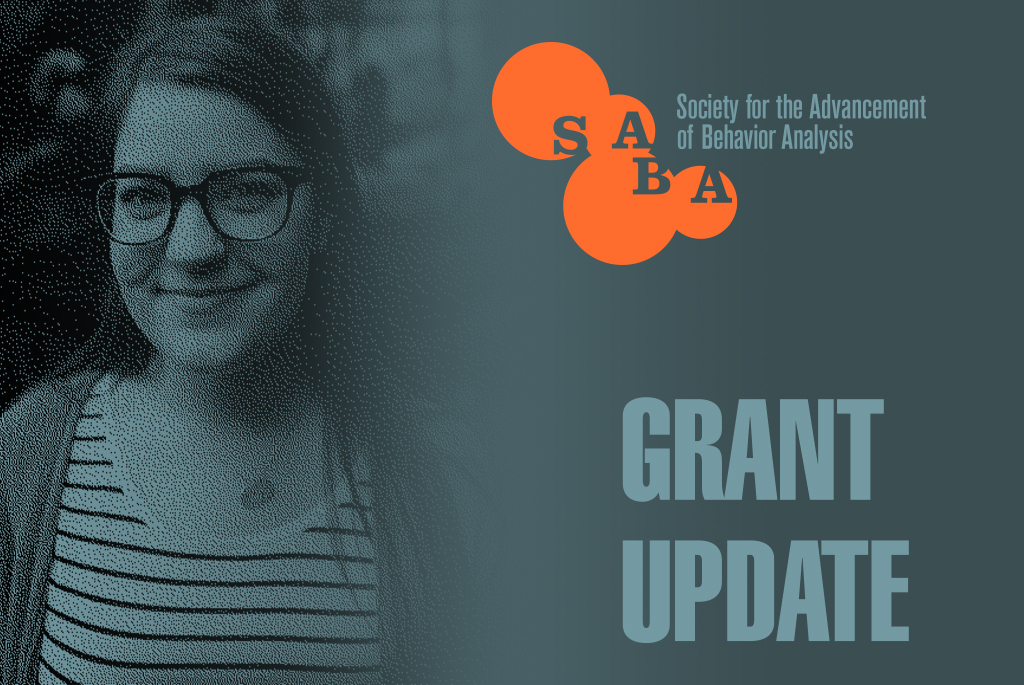Update: Discriminative Stimulus Effects of Cannabidiol (CBD) Oil

By Rebecca Chalmé, 2020 Innovative Student Research Grants (Thesis) Grantee
Research Status
Data collection and analysis for my master’s thesis, Discriminative Stimulus Effects of Cannabidiol (CBD) Oil, have concluded. My advisor, Dr. Karen Anderson, and I are in the process of editing my thesis document so I can defend this semester and submit the manuscript for publication this summer. The results suggest that CBD at a high dose shares some stimulus properties with chlordiazepoxide (CDP), to a degree.
The project was on track to follow the timeline proposed until March 2020. Generalization testing of CBD had begun the same week that we received word that the laboratory would have to close indefinitely as a result of COVID-19. The laboratory ended up closed for three months (March-June 2020) and all research was on hiatus during that time. As a result, I was unable to present findings at the May 2020 ABAI conference, as only one dose of CBD had been tested in one subject when the lab was shut down. I was able to resume data collection in mid-June, and following a period of re-training the discrimination between saline and CDP, generalization testing of all test compounds resumed over the summer and concluded in December 2020. The results will be presented at the upcoming ABAI conference in May 2021.
Use of Funds
The grant money received was mostly spent on CBD oil. The first purchase of CBD oil ($1000) was made at Appalachian Cannabis Company, a local West Virginia-based CBD producer and retailer. A second purchase ($350) was made from an online retailer, Every Day Optimal, as they offered a higher dose of CBD for purchase. The remaining funds ($150) were used to cover my registration for ABAI 2021. No further expenditures relating to this experiment are planned.
Difficulties
The only major unexpected difficulty encountered was the three-month closure of the lab due to COVID-19. Thankfully, I was able to continue and finish the project with little trouble once research was allowed to resume. We were unable to get mass spectrometry analyses conducted on the CBD we used due to departmental budget constraints as a result of COVID-19, and because the CBD itself was so expensive, the grant money was not sufficient to cover the analysis. Instead, certificates of analyses conducted by external laboratories were procured from the CBD retailers.
Closing
I would again like to thank SABA for awarding me this grant. COVID-19 has placed a severe financial burden on our department and therefore our labs, and this funding allowed me to complete my thesis experiment without having to use personal funds. I wasn’t aware at the time of application how important this funding would turn out to be, but in the face of budget cuts, this award made my project possible. Thank you again, and I look forward to sharing the results with you at the ABAI conference in May.
Learn more about Rebecca Chalmé and her project.



